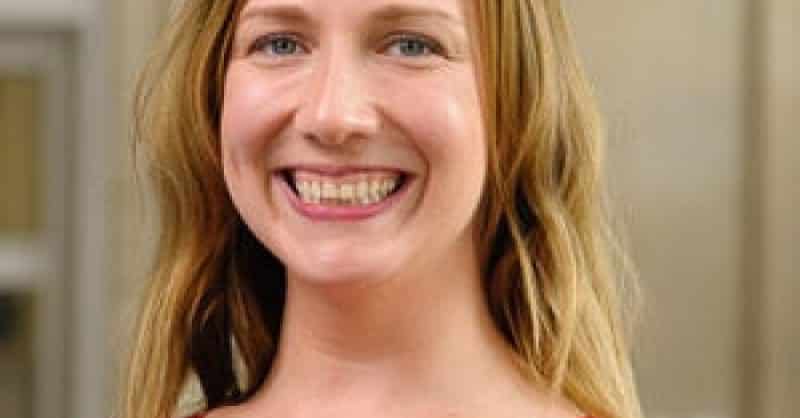Christina Potter
Health behaviours researcher
I am originally from Florida, in the United States. In 2010 I received a Bachelor’s of Science degree in Psychology from the University of Miami. My first research position was as a clinical research assistant at Brown University in Rhode Island, USA, where I worked with families of children with asthma and allergic rhinitis. Here I learned the strong link between asthma and obesity, and gained a deep understanding of the struggles families go through to try to stay healthy.
In 2013 I moved to England and began my PhD in Experimental Psychology at the University of Bristol. I have always been interested in why people choose to eat certain foods, particularly if they know they aren’t a healthy choice (for example, if someone has Type 2 Diabetes and still chooses to eat something high in sugar). Having struggled with and overcome weight issues in the past, this area of research was particularly interesting to me. My PhD research focused on the psychology of food choice, specifically looking at eating behaviours that lead to obesity in children and adults. This included portion size selection, meal patterns (such as number of meals per day and when meals are eaten), children’s preferences for snack foods, and interactions between parents and children when making food choices.
I moved from Bristol to Oxford in January 2018 to begin my role as a health behaviours researcher on the Livestock Environment and People (LEAP) team. The goal of the LEAP project is to understand the impact of meat and dairy on human health and the environment. My role involves developing behavioural interventions to help people consume less meat in their diet, with the idea being that eating less meat is more sustainable, better for the environment, and better for health. As someone who used to eat meat several times a day and no longer eats it at all, I strongly believe in people’s ability to change their eating habits and to still feel fulfilled, healthy and happy. As part of the LEAP team, I feel that I am doing my part to help people to make healthier, more sustainable choices by choosing to purchase and eat less meat.
You may have seen our team at some public engagement events at both the Museum of Natural History in Oxford (https://www.leap.ox.ac.uk/article/leap-super-science-saturday) and at the Natural History Museum in London (https://www.leap.ox.ac.uk/article/leap-at-the-natural-history-museum-london). At these events, my team and I spoke to people about their thoughts about eating less meat, and the sorts of interventions they might be willing to accept in order to make changes to their own diet.



